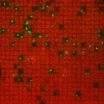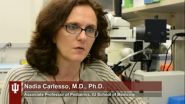(Press-News.org) Created at Monash University, the world's first toolkit is designed for GPs to use with women from the age of 40. Thought to be the first of its kind, researchers say the toolkit has the potential to help manage menopausal conditions for women globally.
The Practitioner Toolkit for Managing the Menopause, which includes a diagnostic tool, as well as a compendium of approved hormone therapies, is published today in the journal, Climacteric.
Led by Professor Susan Davis, the research team from the School of Public Health and Preventative Medicine, combined existing research on menopause, diagnostic algorithms and extensive clinical experience to develop the diagnostic tool. Designed for use in a GP surgery, it also works through a patient's medical history and risk factors to arrive at the best treatment solution.
Professor Davis said the toolkit fills the void of clear guidelines on menopause diagnosis and management, equipping doctors with the fundamentals to care for any woman who walks through the door.
"There are many detailed guidelines available on menopause but the reality is that most GPs don't have the time to work through a 40 page report when they only have 5 or 10 minutes with a patient," Professor Davis said.
"Based on feedback from patients and doctors we realised there's widespread confusion, not only in how to determine when menopause starts but also prescribing appropriate treatment to help with side effects.
With many recent medical graduates receiving little training in this area, we realised there was a clear need for simple and practical guidelines," she said.
Menopause, also known as 'the change of life', marks the end of the monthly cycle of menstruation and reproductive years in a woman's life. Most women reach menopause between the ages of 45 and 55.
Professor Susan Davis said due to hormonal changes, menopausal symptoms, which include hot flushes, anxiety and depression and joint pain, vary widely from none at all to debilitating, making a straightforward diagnosis difficult.
"Half the world's population will experience menopause as some point in their lives, yet there isn't a commonly used diagnostic tool and that's creating confusion amongst women and doctors," Professor Davis said.
"Many people think the menopause is the same for every woman but the reality is quite different. Every woman has her own individual experience of menopause and that sometimes makes it tricky to diagnose," she said.
The free resource includes a flow chart of standardised questions for doctors to ask, and assess women who are potentially experiencing menopause. The kit also flags safety concerns, provides a list of all hormone therapies approved by regulators in different countries and lists non-hormonal therapies that have evidence to support their use.
Professor Davis said the toolkit would also help inform GPs and patients on the benefits and risks of menopausal treatment.
"Hormone therapy is commonly prescribed to women, but its success varies according to symptom type and severity, personal circumstances and medical background.
"This toolkit has the potential to change that because it's designed to work as just as well for a 41 year old woman in Madras as it will for the 48 year old in Manhattan," said Professor Davis.
The International Menopause Society (IMS) is promoting the use of the toolkit throughout the world, stating that it is the first to present structured practical advice.
IMS President, Rod Baber said the toolkit builds on formal guidelines on menopause.
"This will ensure that each individual woman is well informed about what happens to her as she ages, about what options for treatment and monitoring are available and lastly what menopausal hormone therapy options are," said Rod Baber.
General Practitioner Dr Jane Elliott said the toolkit was clear and accessible, making it ideal to use for GP consultations.
"The flow-chart should be on the computer desk top of all GP's. This will go a long way towards helping busy GP's feel that managing menopause is no longer in the 'too hard basket' and women will benefit as a result," Dr Elliot said.
Leading Endocrinologist and President of the Australasian Menopause Society, Dr Anna Fenton welcomed the introduction of the toolkit, recommending widespread use amongst health practitioners.
"In an area fraught with myths and misinformation, this toolkit provides concise and accurate information. The key messages are clear and the advice is practical and evidence-based. Many women are confused and uncertain about how best to deal with the menopause. Doctors can also face uncertainty in how best to treat and support patients with menopausal symptoms. This toolkit has the potential to change that," Dr Fenton said.
INFORMATION:
The Practitioner Toolkit for the Managing the Menopause will be available to download for free from Climacteric from Monday 7 July.
Global toolkit to diagnose menopause
2014-07-06
ELSE PRESS RELEASES FROM THIS DATE:
The Lancet: Sierra Leone researchers call for improved health surveillance and communication around Ebola crisis
2014-07-05
Researchers working in Sierra Leone today [Saturday 5 July] suggest priority actions needed to tackle the ongoing Ebola crisis in West Africa. In a letter to The Lancet, the researchers call for improvements in access to diagnostic technologies and health-care resources, as well as improved disease surveillance and health communication.
At present, there is little incentive for patients to seek professional diagnosis of suspected Ebola, say the authors, with most people with febrile (fever-causing) illnesses in Sierra Leone treated at home, and the true extent of the ...
The Lancet: New trial suggests cheaper drugs for common heart attack procedure could improve outcomes and save health budgets millions
2014-07-05
A new study published in The Lancet compares outcomes for two drugs used to prevent blood clot formation during emergency heart attack treatment. The study suggests that use of one of the drugs, heparin, could result in improved outcomes (such as a reduced rate of repeat heart attacks), compared to the other drug tested, bivalirudin, which is in widespread use in high-income countries, and is around 400 times more expensive than heparin.
The results of the HEAT-PPCI trial suggest that systematic use of heparin rather than bivalirudin after primary percutaneous coronary ...
Association found between high cholesterol and breast cancer
2014-07-04
This news release is available in Spanish.
Barcelona, 4 July 2014: An association between high blood cholesterol and breast cancer has been found in a study of more than 1 million patients over a 14 year time period in the UK. The research will be presented today at Frontiers in CardioVascular Biology (FCVB) 2014 in Barcelona, Spain. The meeting is organised by the Council on Basic Cardiovascular Science of the European Society of Cardiology (ESC) in collaboration with 13 European cardiovascular science societies.
http://spo.escardio.org/SessionDetails.aspx?eevtid=65&sessId=13301&subSessId=3494
Dr ...
First evidence for painless atrial fibrillation treatment
2014-07-04
Barcelona, 4 July 2014: The first evidence for a shockless treatment for atrial fibrillation (AF) will be presented today at Frontiers in CardioVascular Biology (FCVB) 2014 in Barcelona, Spain. The meeting is organised by the Council on Basic Cardiovascular Science of the European Society of Cardiology (ESC) in collaboration with 13 European cardiovascular science societies. http://spo.escardio.org/SessionDetails.aspx?eevtid=65&sessId=13104
Dr Brian O. Bingen, first author, said: "AF is the most common cardiac arrhythmia. Symptoms range from the feeling of fish flapping ...
Effects of conflict on women's reproductive health need to be managed sensitively
2014-07-04
Clinicians need to be sensitive and aware of the unique challenges of women's reproductive health needs in times of conflict, suggests a new review published today (4 July) in The Obstetrician & Gynaecologist (TOG).
Approximately 1.5 billion people are currently living in countries affected by conflict, fragility or large-scale violence. Women and children account for approximately 75% of those displaced by conflict and roughly 20% of those displaced are women of reproductive age and one in five will be pregnant.
This new review looks at how conflict can negatively ...
New discovery in living cell signaling
2014-07-03
A breakthrough discovery into how living cells process and respond to chemical information could help advance the development of treatments for a large number of cancers and other cellular disorders that have been resistant to therapy. An international collaboration of researchers, led by scientists with the U.S. Department of Energy (DOE)'s Lawrence Berkeley National Laboratory (Berkeley Lab) and the University of California (UC) Berkeley, have unlocked the secret behind the activation of the Ras family of proteins, one of the most important components of cellular signaling ...
Compounded outcomes associated with comorbid Alzheimer's disease & cerebrovascular disease
2014-07-03
LEXINGTON, Ky. (July 3, 2014) -- Researchers from the Sanders-Brown Center on Aging at the University of Kentucky have been able to confirm anecdotal information on patients with both Alzheimer's disease (AD) and cerebrovascular disease (CVD) using mouse models in two different studies.
The findings of these two studies, which were recently published in Acta Neuropathologica and Alzheimer's Research & Therapy, have potentially significant implications for patients with both disorders.
Both papers studied CVD in Alzheimer's disease mouse models using different lifestyle ...
Biochemical cascade causes bone marrow inflammation, leading to serious blood disorders
2014-07-03
VIDEO:
Like a line of falling dominos, a cascade of molecular events in the bone marrow produces high levels of inflammation that disrupt normal blood formation and lead to potentially deadly...
Click here for more information.
INDIANAPOLIS -- Like a line of falling dominos, a cascade of molecular events in the bone marrow produces high levels of inflammation that disrupt normal blood formation and lead to potentially deadly disorders including leukemia, an Indiana University-led ...
How knots can swap positions on a DNA strand
2014-07-03
Physicists of Johannes Gutenberg University Mainz (JGU) and the Graduate School of Excellence "Materials Science in Mainz" (MAINZ) have been able with the aid of computer simulations to confirm and explain a mechanism by which two knots on a DNA strand can interchange their positions. For this, one of the knots grows in size while the other diffuses along the contour of the former. Since there is only a small free energy barrier to swap, a significant number of crossing events have been observed in molecular dynamics simulations, i.e., there is a high probability of such ...
From pencil marks to quantum computers
2014-07-03
Introducing graphene
One of the hottest materials in condensed matter research today is graphene.
Graphene had an unlikely start: it began with researchers messing around with pencil marks on paper. Pencil "lead" is actually made of graphite, which is a soft crystal lattice made of nothing but carbon atoms. When pencils deposit that graphite on paper, the lattice is laid down in thin sheets. By pulling that lattice apart into thinner sheets – originally using Scotch tape – researchers discovered that they could make flakes of crystal just one atom thick.
The name ...





